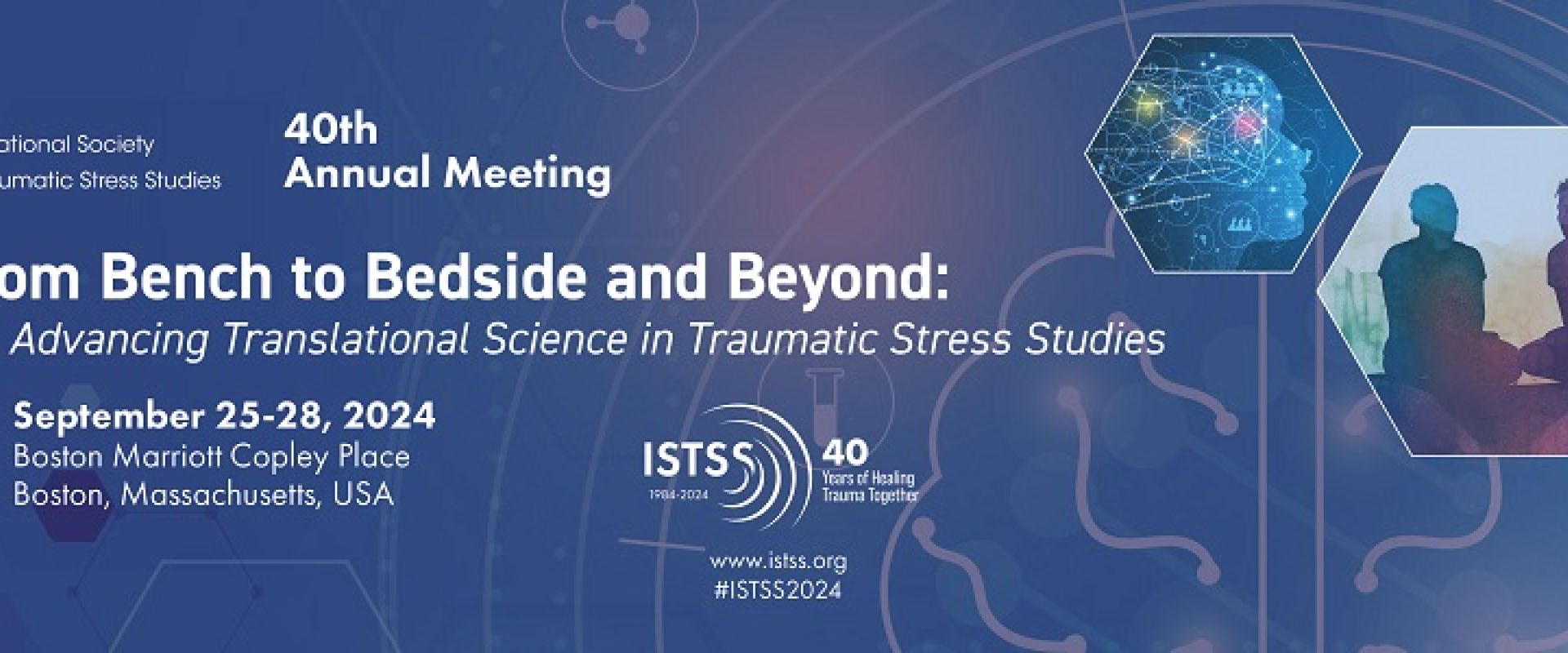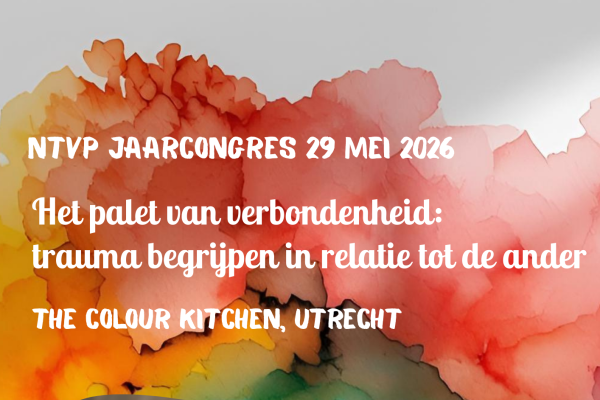tot
September 25-28, 2024:
Boston Marriott Copley Place, Boston, Massachusetts, USA
The ISTSS Annual Meeting provides a forum for the dissemination of theoretical work, scientific research, and evidence-based clinical approaches in traumatic stress studies. The annual meeting also includes work aimed at informing public policy. At the annual meeting, professionals and stakeholders develop and strengthen collaborative relationships to move the field of traumatic stress forward. It is an international and interdisciplinary assembly, including psychiatrists, psychologists, social workers, nurses, counselors, researchers, administrators, victim advocates, journalists, clergy, and others with an interest in the study and treatment of traumatic stress.
Many individuals around the world experience significant adversity and trauma, including pandemics, war, violence, racism, and historical oppression. Such events impact a wide range of mental, social, and physical health outcomes across the lifespan. While significant advances in the field of traumatic stress studies have been made, the timeline for the dissemination and implementation of research findings into practice is longer than optimal, delaying the positive contributions of science in real-world contexts. There remains a critical gap in translating research findings from laboratory settings to clinical work and ultimately to the broader global community. Hence, there needs to be an ongoing discussion on innovative research, clinical methodologies, and policies that draw from, and combine, traumatic stress theory, basic science, experimental research, clinical insights, and implementation to move the field of trauma research and practice forward.
The ISTSS 40th Annual Meeting will focus on innovative strategies to apply basic science knowledge to the assessment and treatment of traumatic stress, as well as on the translation of scientific findings into actionable interventions for the global community. In pursuit of this goal, we seek submissions specific to the field of traumatic stress on topics related—but not limited—to:
- Application of biomedical science findings to inform assessments and interventions for traumatic stress symptoms/disorders.
- Research investigating the psychological, biological, social and behavioral mechanisms that underlie post-trauma mental health.
- Research taking a life course perspective to address to address the spectrum of translational science research.
- Evidence-based practices and innovative research in basic science, intervention development and implementation, and policy.
- Innovative transdiagnostic treatment approaches addressing the myriad consequences of trauma.
- Cutting-edge research methodologies and statistical frameworks for translational science research.
- Ethical implications and considerations associated with the application of translational science in traumatic stress studies.
- Ways to effectively communicate and disseminate research to different stakeholders.
- Ways to cultivate translational science and interdisciplinary exchange.
- Challenges and debates in the area of translational science.
- Translational science as applicable to the global community.
Broadly, the scientific content of this meeting aims to bridge the gap between bench, bedside, and implementation in the field of traumatic stress science and enhance a seamless translation of scientific knowledge into meaningful and feasible solutions. Ultimately, the goal of this meeting is to reduce the public and economic health burden of traumatic stress symptoms for the global community and foster patient outcomes, understanding and management of traumatic stress symptoms and community resilience in the face of trauma. You will learn to:
- Discuss foundational concepts and methodologies of translational science in the context of traumatic stress studies globally.
- Demonstrate an understanding of the complexities and challenges involved in translating research outcomes from bench to bedside.
- Formulate and implement evidence-based interventions and best practices to integrate scientific research into clinical practice.
- Devise innovation solutions to bridge the gap between scientific discoveries, clinical practice, as well as policy development and public health initiatives.



